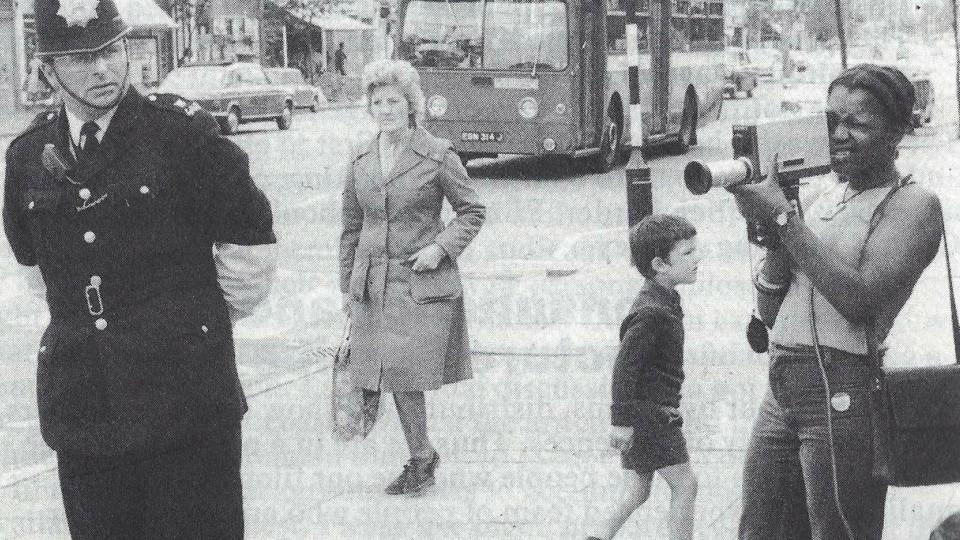London Community Video Archive set for BFI launch
Primary page content
A selection of rare community videos from the ‘70s and ‘80s have been archived and are set to be officially unveiled thanks to a project at Goldsmiths, University of London.

A still image taken from LCVA footage
The London Community Video Archive (LCVA) – run by the Department of Media and Communications – has rescued a large collection of videos made in London and the South East that were in danger of decaying.
The launch of the project takes place on Thursday 22 June at 6pm at the British Film Institute (BFI), Southbank. The event will feature presentations about the archive, oral history project and upcoming events programme.
There will also be a ticketed public screening at the BFI following the launch event. Tickets will be available through the BFI box office.
The archive features footage from an era when portable video recording was just becoming available.
The medium was taken up by people ignored or under-represented by the media – tenants on housing estates, community action groups, women, black and minority ethnic groups, gay and lesbian communities etc.
The footage highlighted issues such as housing, play-space, discrimination and youth arts.
As well as restoring the footage, the LCVA also conducted 22 oral history interviews with a representative sample of people from the community, and have created a web platform to exhibit the archive.
The project was made possible by a £76,000 grant from the Heritage Lottery Fund, which was awarded to Goldsmiths in April 2016.
Professor Tony Dowmunt, who is part of the LCVA team, said: “Since our 1891 birth in New Cross, Goldsmiths has served and been shaped by our vibrant, ever-changing and growing local community. The 1970s in particular saw an intense and turbulent political climate in Lewisham and across London as a whole. It is vital that we preserve the history of our communities, their ups and downs, struggles and celebrations, for future generations. We're delighted that we've been able to do this and are very grateful to the Heritage Lottery Fund for making it possible.”